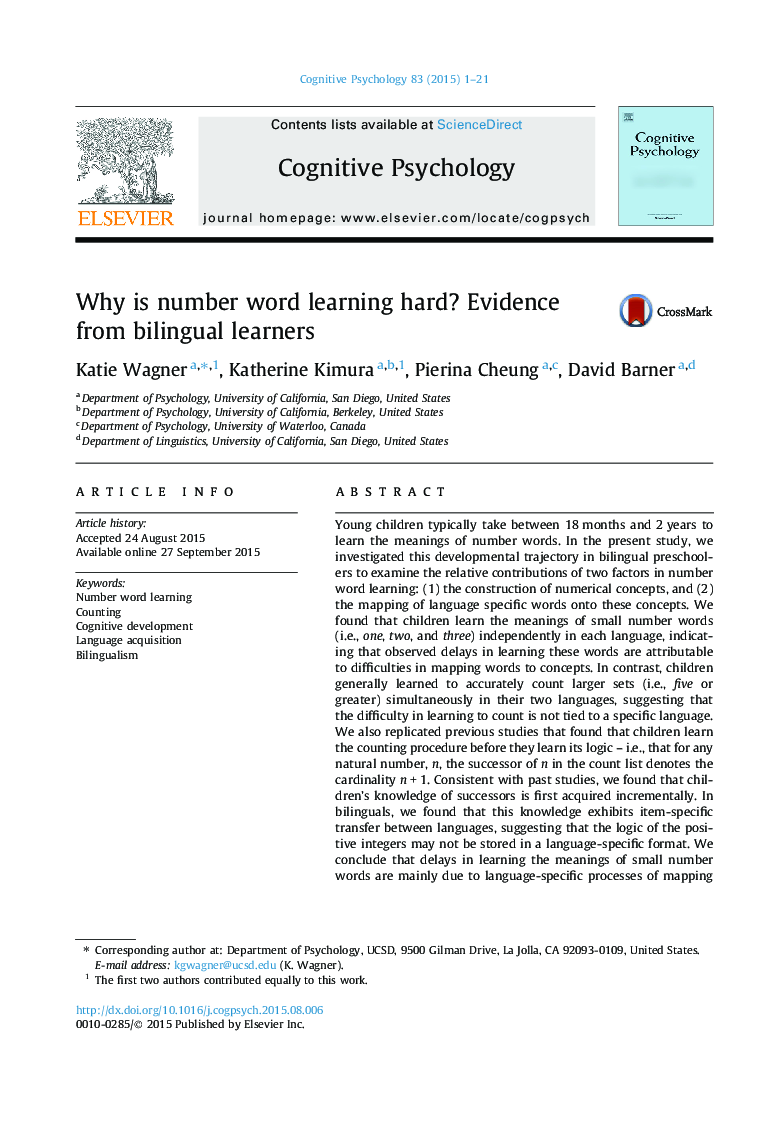| Article ID | Journal | Published Year | Pages | File Type |
|---|---|---|---|---|
| 916829 | Cognitive Psychology | 2015 | 21 Pages |
•Bilingual children acquire small number words independently in each language.•Language specific mapping accounts for the delays in learning small number words.•The ability to use counting to create numerical sets transfers between languages.•Conceptual change accounts for the delay in learning the counting routine.•Children learn the counting routine before learning the principle that guides it.
Young children typically take between 18 months and 2 years to learn the meanings of number words. In the present study, we investigated this developmental trajectory in bilingual preschoolers to examine the relative contributions of two factors in number word learning: (1) the construction of numerical concepts, and (2) the mapping of language specific words onto these concepts. We found that children learn the meanings of small number words (i.e., one, two, and three) independently in each language, indicating that observed delays in learning these words are attributable to difficulties in mapping words to concepts. In contrast, children generally learned to accurately count larger sets (i.e., five or greater) simultaneously in their two languages, suggesting that the difficulty in learning to count is not tied to a specific language. We also replicated previous studies that found that children learn the counting procedure before they learn its logic – i.e., that for any natural number, n, the successor of n in the count list denotes the cardinality n + 1. Consistent with past studies, we found that children’s knowledge of successors is first acquired incrementally. In bilinguals, we found that this knowledge exhibits item-specific transfer between languages, suggesting that the logic of the positive integers may not be stored in a language-specific format. We conclude that delays in learning the meanings of small number words are mainly due to language-specific processes of mapping words to concepts, whereas the logic and procedures of counting appear to be learned in a format that is independent of a particular language and thus transfers rapidly from one language to the other in development.
